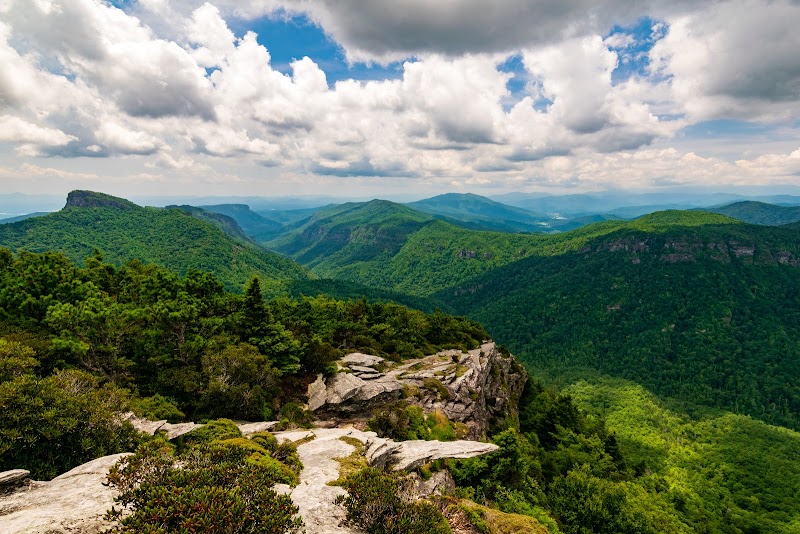
Mountain Heritage Day: Experiencing Banner Elk’s Outdoor Legacy
Mountain Heritage Day in Banner Elk, North Carolina, offers a unique blend of outdoor exploration and cultural celebration. Experience scenic hiking trails, local crafts, and Appalachian music while engaging with the mountain landscape that shapes it all.
Hydrate Constantly
Mountain air is dry and can quickly dehydrate you, especially during active hiking. Carry at least two liters of water and take small sips regularly.
Wear Supportive Footwear
Expect varied terrain: dirt paths, rocky patches, and occasional roots. Hiking boots or shoes with good ankle support and grip are advisable.
Layer Your Clothing
Fall mornings can be chilly, but afternoons warm quickly. Dress in moisture-wicking base layers with a breathable insulating layer and a windbreaker.
Plan for Limited Cell Service
Some parts of the trail have weak or no cell signal; download maps offline and inform someone of your plans before heading out.
Mountain Heritage Day: Experiencing Banner Elk’s Outdoor Legacy
Every October, Banner Elk comes alive with Mountain Heritage Day, a celebration that threads through its rich Appalachian roots and the rugged natural beauty surrounding this mountain town. This event invites adventurers and culture seekers alike to explore the landscapes that have shaped local life and lore, along with crafts, music, and stories that echo the area's heritage.
Banner Elk’s mountain trails, with their crisp elevation changes and forested routes, become stages for outdoor enthusiasts to engage with the environment fairly and vividly. A standout feature is the Elk River Trail, which sweeps across gentle ridges and dips into shaded hollows. This trail spans roughly 5 miles round trip, climbing about 800 feet in elevation—enough to challenge legs without overwhelming the casual hiker.
The terrain balances smooth dirt paths with occasional rocky steps, demanding sturdy footwear for sure footing. As you navigate the shaded canopy, the trees seem to lean in, whispering stories of the centuries they've watched. The river nearby dares your presence, its currents pushing forward with a quiet, insistent energy that pulls you along your route.
Mountain Heritage Day does more than guide you outdoors; it connects you to the land’s fierce individuality—a force not to dominate, but to respect and understand. Plan your visit with practical timing: mornings bring cooler air and softer light, ideal for photography and birdwatching, while afternoons tend to warm up, inviting breaks by the riverside or local artisan tents.
Hydration is non-negotiable. The crisp mountain air can mask dehydration risks, so carry at least two liters of water. Footwear should provide ankle support and grip, given the mix of loam, leaf litter, and rocky footing. Dress in layers—daytime shifts in temperature are common, especially in fall when Mountain Heritage Day is held.
Beyond hiking, this celebration highlights local crafters who keep Appalachian traditions alive, from woodworkers to weavers. Musicians fill the air with folk tunes, blending seamlessly with the surrounding natural sounds—wind through the pines, water over stones, boots on trail.
For those equipped and eager, partake in guided hikes or storytelling sessions that deepen the experience. For families and casual visitors, craft booths and food vendors provide accessible entry points into mountain culture.
Mountain Heritage Day in Banner Elk balances adventure and education, honoring a landscape that is as much a participant in the day as the hikers, musicians, and artisans it hosts. It’s an invitation to move at the pace of the mountains—steady, respectful, and alive with possibility.
Nearby Trips
All Adventures
Boat Charters
Water Activities
Adventures near Boone, North Carolina
Discover the unique and memorable adventures that make Boone, North Carolina special.
Frequently Asked Questions
What is the best way to reach Banner Elk for Mountain Heritage Day?
Most visitors arrive via Boone, NC, about 11 miles away. Renting a car or using ride services from Boone is common because public transit options are limited.
Are dogs allowed on the hiking trails during Mountain Heritage Day?
Yes, dogs are welcome but must be on a leash. Be aware that increased crowds and event activities can stress some pets.
Is Mountain Heritage Day suitable for families with small children?
Absolutely. The event includes family-friendly activities, short beginner hikes, craft demonstrations, and music that engage all ages.
What kind of wildlife might I see on the trail?
White-tailed deer, black bears (rarely seen), wild turkey, and various songbirds are common. Early mornings offer the highest chance to spot active wildlife.
Are there any hidden viewpoints not to miss during the hike?
Yes. Halfway along Elk River Trail, a small clearing offers a sweeping overlook of the valley below—an ideal spot to pause and take in the scene.
How should I prepare for changing weather conditions?
Bring layers and waterproof options, especially during fall. Mountain weather can shift rapidly, so prepare for wind, rain, or cold even if morning starts warm.
Recommended Gear
Hiking Boots
Sturdy boots provide traction and protect ankles on mixed rocky and dirt terrain.
Hydration Pack or Water Bottles
Essential for maintaining hydration, especially in dry mountain air.
Layered Clothing
Adjustable layers keep you comfortable through temperature shifts typical of fall days.
Trail Map/Offline GPS
Useful for navigation in areas with limited cell reception.
Local Insights
Hidden Gems
- "The small meadow near the Elk River Trail’s midpoint offers peaceful birdwatching."
- "A roadside overlook on Veterans Drive reveals rarely photographed views of Grandfather Mountain."
Wildlife
- "Black bears"
- "Ruffed grouse"
- "Eastern box turtles"
- "Red foxes"
History
"Banner Elk was originally settled in the early 1800s by European immigrants and has grown as a mountain craft and farming community, preserving Appalachian traditions celebrated during Mountain Heritage Day."
